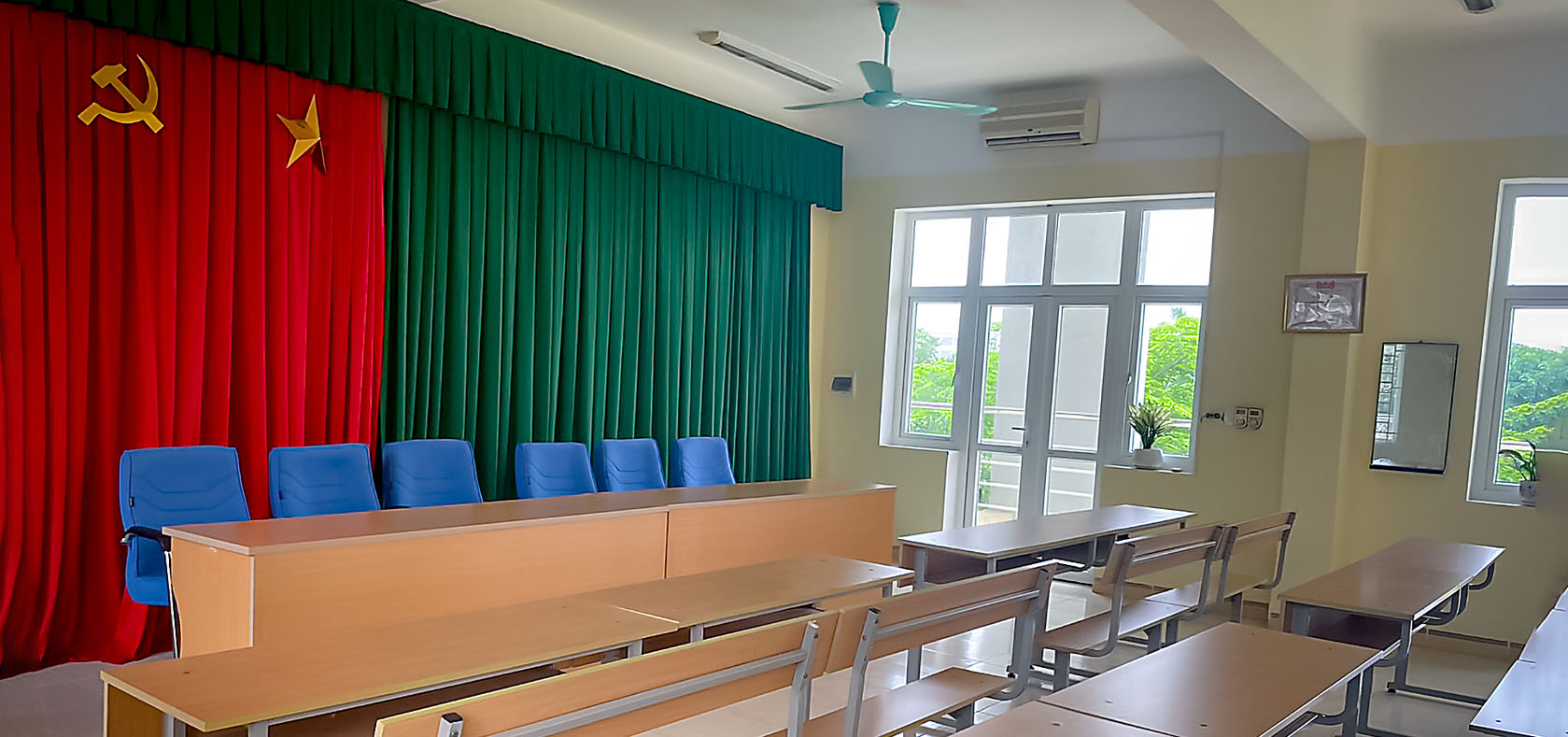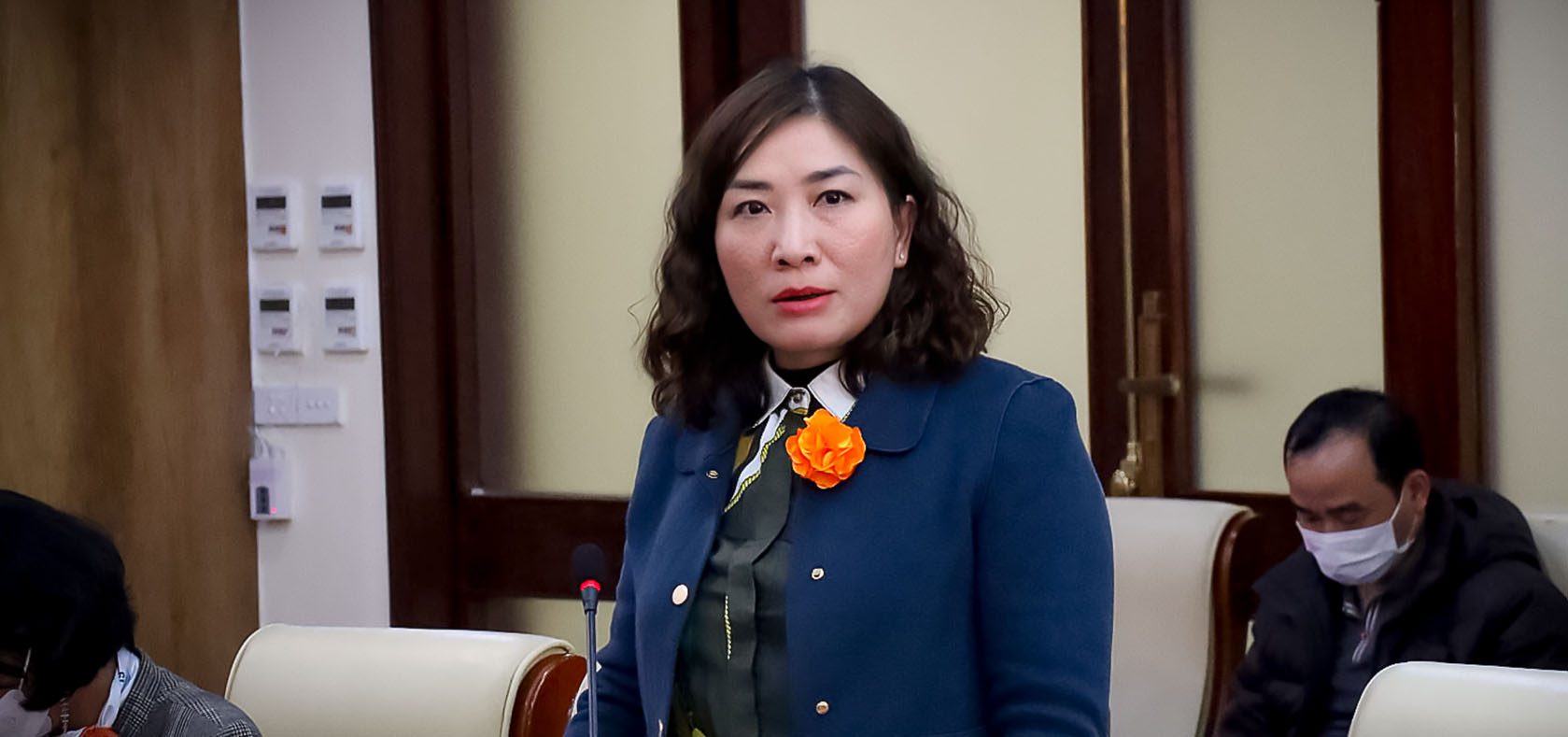Building a campus without violence in Viet Nam
Date:
Author: Thao Hoang
Ha Noi, Viet Nam — More than half of female students at three leading Vietnamese universities, and almost a third of lecturers, has experienced at least one form of sexual harassment in and around campus over the past academic year, most commonly verbal sexual harassment. The figures of 51.8 per cent and 30.2 per cent, respectively, were findings from a campus climate survey conducted in February with support from UN Women in Viet Nam, and released in June this year.
The responses from 1,809 students and 350 staff and lecturers in universities in Ha Noi, Thai Nguyen and Thanh Hoa province, demonstrate the extent and impacts of sexual harassment in the higher education sector. UN Women funded the survey under the Safe Campus initiative, a regional project to eliminate violence against women.
“I’ve received many comments on my appearance and in many cases, I feel uncomfortable and anxious. Before I didn’t know that’s a form of sexual harassment.” said My Duyen, 19, a female student at Hong Duc University.
Though stressing that the university is very safe, My Duyen still wishes the university could invest more in security cameras and lighting systems. “If I must go to the library in the evening, I will go with a group of friends,” she said.

With a campus of 480,000 square metres and 10,000 students, Hong Duc is one of the largest universities in Thanh Hoa, a province in the Northern Central Region of Viet Nam. It has few cameras and only one psychological counselling room, with four lecturers responsible for the counselling service.

The survey in February also explored students’ attitudes and knowledge about sexual harassment, reporting processes and how to seek help, establishing a benchmark against which universities can measure their progress in the future. According to the survey results, 72.2 per cent of respondents did not know about safe shelters and hotlines in the country, and 51.2 per cent of them did not know about psychological counselling rooms in their universities.
To raise awareness of students about gender-based violence, the three universities, with support from UN Women, implemented a series of communications activities called Orange Your Campus, Confession Box and You Are Not Alone in December 2021 and early 2022. The activities aimed to provide knowledge on gender-based violence and information on available services for survivors. The campaigns received huge attention from students and lecturers on social media with an estimated 2 million views and shares within only three months.
UN Women also supported the three universities' upgrade of the psychological services facilities to better support student survivors of gender-based violence. The Confession Box activities received more than 215 letters from students in Hong Duc University sharing their experiences and stories about gender-based violence.

“I was very surprised by the big number of letters which were sent to our counselling room in December 2021, said Hoai Thu, 42, a psychological lecturer at Hong Duc University. “Through the Orange The Campus communications activities, I believe students have learned more about gender-based violence. Some of them become more open to share their stories and seek help.”
Le Thi Hang, Deputy Director of the Department of Political Work, Students, Ministry of Education and Training, highly appreciated the support of UN Women through the project to spread the message of gender equality, ending all forms of violence against female students and staff in universities.

“The data obtained from this project will be a valuable basis for educational administrators, policymakers, the Ministry of Education and Training and other agencies to issue regulations and policies, and to develop practical and effective tooks to ensure a safe and non-violent school environment for students,” she said.
To continue with the achievements of the safe campus initiative, UN Women Viet Nam will expand its supports to Ministry of Education and Training and more universities in Viet Nam through its ending violence against women and girls programme to ensure campus safe for all students and staff.